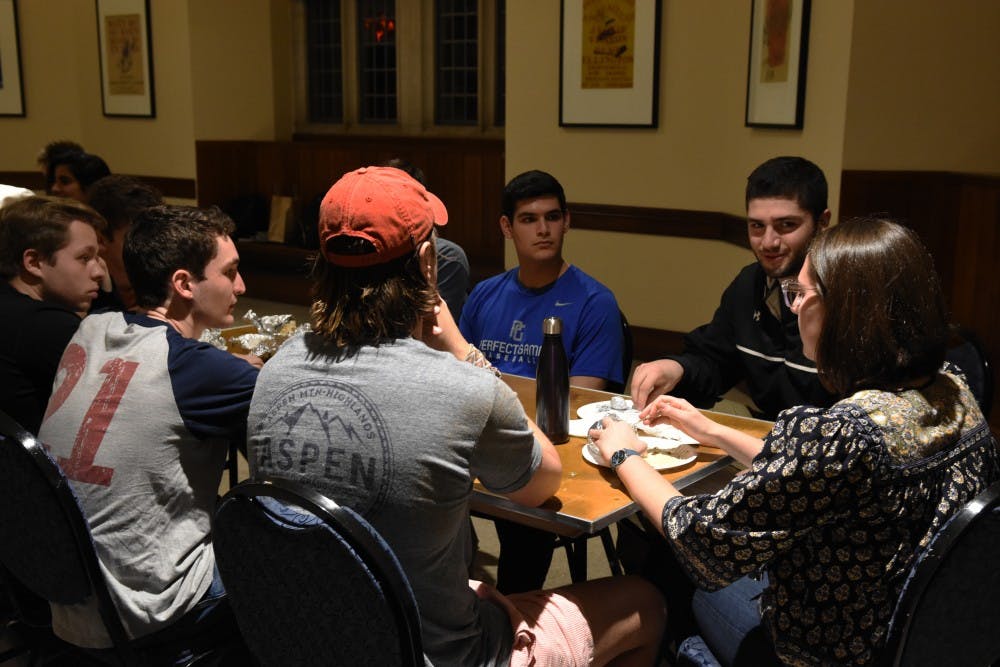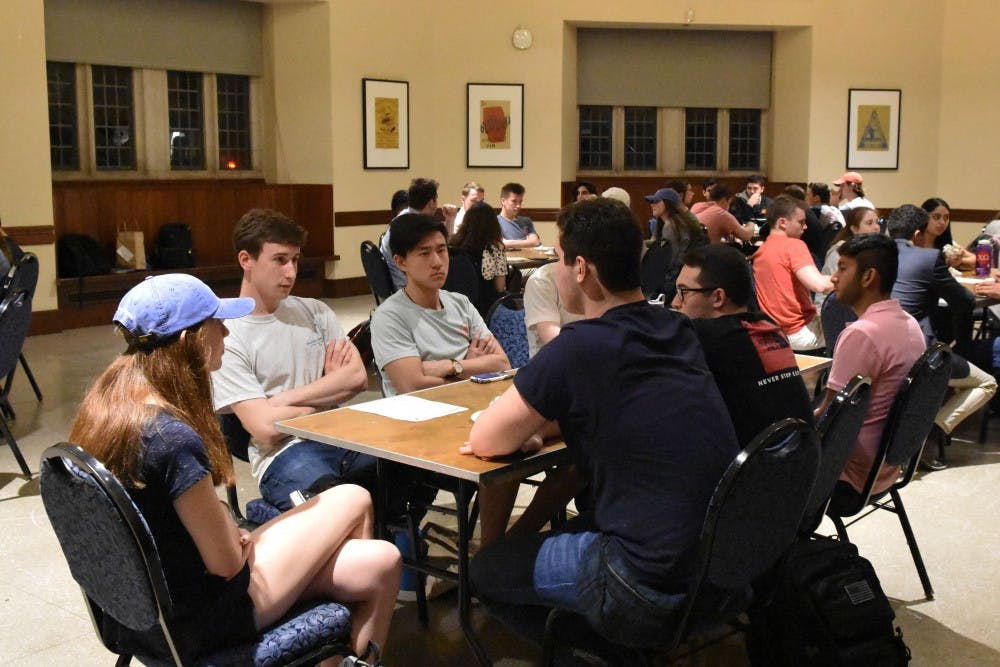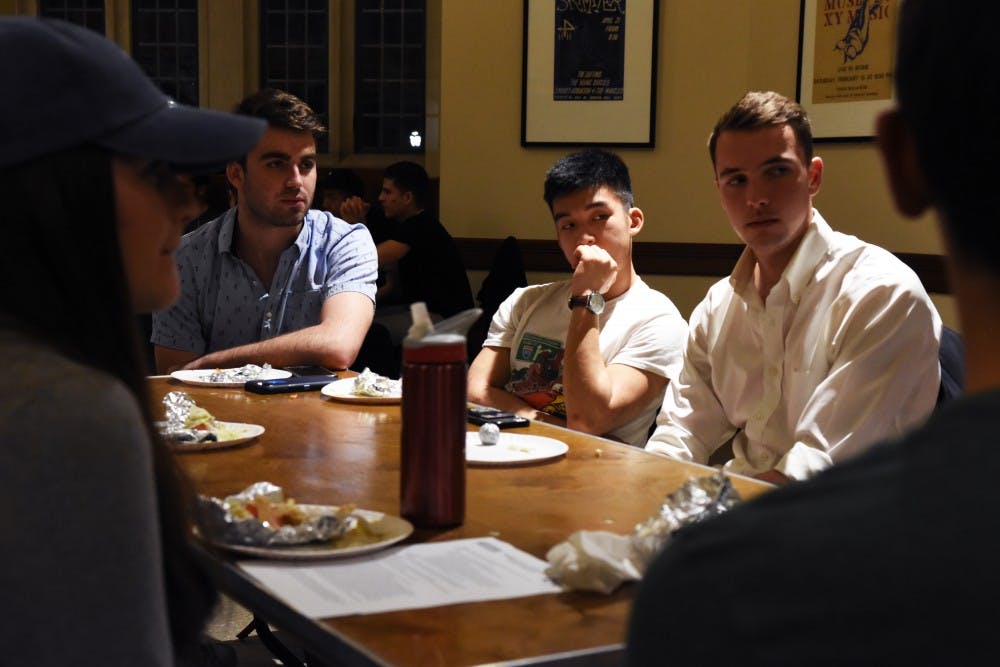
At an event held by TableTalk Penn and the Undergraduate Assembly on Tuesday, students talked about hazing at Penn and explored the various roles it can play in organizations on campus.
The "Why We Haze" event split participants into small groups that discussed topics ranging from the role of alcohol in hazing, the difference between emotional and physical hazing, and the impact of Penn's anti-hazing policies.
Members of TableTalk or the UA led the groups. Although the event organizers hoped the discussion would attract students from all over campus, the event was dominated by members of Greek life. The UA collaborated with Penn Interfraternity Council, which included the event as one of the new member education options.
Under the IFC’s requirements, Greek organizations must send new members to at least three of nine events.

With a series of hazing-related deaths reported all over the country, the Greek system itself has been under intense scrutiny.
"Hazing is a pretty prevalent thing at Penn and something we think should be mitigated or stopped," UA representative and Engineering sophomore Nick Parkes said. "We didn’t necessarily want to do it through an angle of the administration taking sort of an iron hand to regulate things … we wanted to more instigate sort of a culture change."
Nick Parkes, an Engineering sophomore and representative of the Undergraduate Assembly, recognized this and decided to make hazing his project for the UA. He approached TableTalk last semester and organized the event with TableTalks co-chairs and College freshmen, Amelia Galbraith and Eva Spier.
TableTalk Penn is a club on campus that aims to promote dialogue between groups of people that wouldn’t ordinarily have these conversations. Previous TableTalk conversations have focused on diversity within Greek life, food justice and environmental sustainability, and education.
Galbraith said she hoped the talk would encourage “dialogue about hazing and club initiation not necessarily on Penn’s campus but on college campuses in general" and "more dialogue about actually deconstructing cycles and traditions in hazing.”
College freshman and Sigma Chi member Peter Solomon said he heard about the event after the president of his fraternity told the new members about it.
“This one seemed interesting because you hear a lot of stories about hazing, like the Penn State one for example," Solomon said. He added that the fatal Penn State hazing incident was especially personal to him because he is from a suburb of Philadelphia where "everyone goes to Penn State."
College freshman Logan Nantais had a similar response about his motivations for attending the event, claiming, “The fraternity thought it was important that we hear what people had to say and that we could learn from it.”
Feedback after the discussion was positive, as some attendees said the event exceeded their expectations.

Chi Omega member and College freshman Simran Chand attended without being encouraged by her sorority. Knowing that some fraternities require their new members to attend, Chand said, "I thought it would be a superficial conversation where it was predominately non-fraternity members that would be speaking and speculating as to the process. But I found it to be very different. The pledges were actively participating and it was really interesting to get their perspectives.”
Phi Delt member and College freshman Jack Callahan said he had expected the organizers to tell attendees "what is right and what is wrong" and was surprised at how helpful the discussion actually was.
"I didn’t know it was going to be so open and sort of a two-way conversation," said Callahan. He added that the discussion could answer questions about what practices Penn's anti-hazing policies find acceptable and not acceptable. "Being educated helps us determine where that line is for us and determine where the line is for Penn.”
However, Chand said she did not gain clarity on the definition of hazing after the discussion.
“For example, some people said that in their organizations they had to attend required meetings. Does that count as hazing? But then, other things that are considered the typical physical-emotional trauma, that’s considered hazing," Chand said. "But at the same time, clubs at Penn go through different initiations that are very similar to Greek hazing. So I have absolutely no idea how I would define hazing.”
The Daily Pennsylvanian is an independent, student-run newspaper. Please consider making a donation to support the coverage that shapes the University. Your generosity ensures a future of strong journalism at Penn.
Donate







